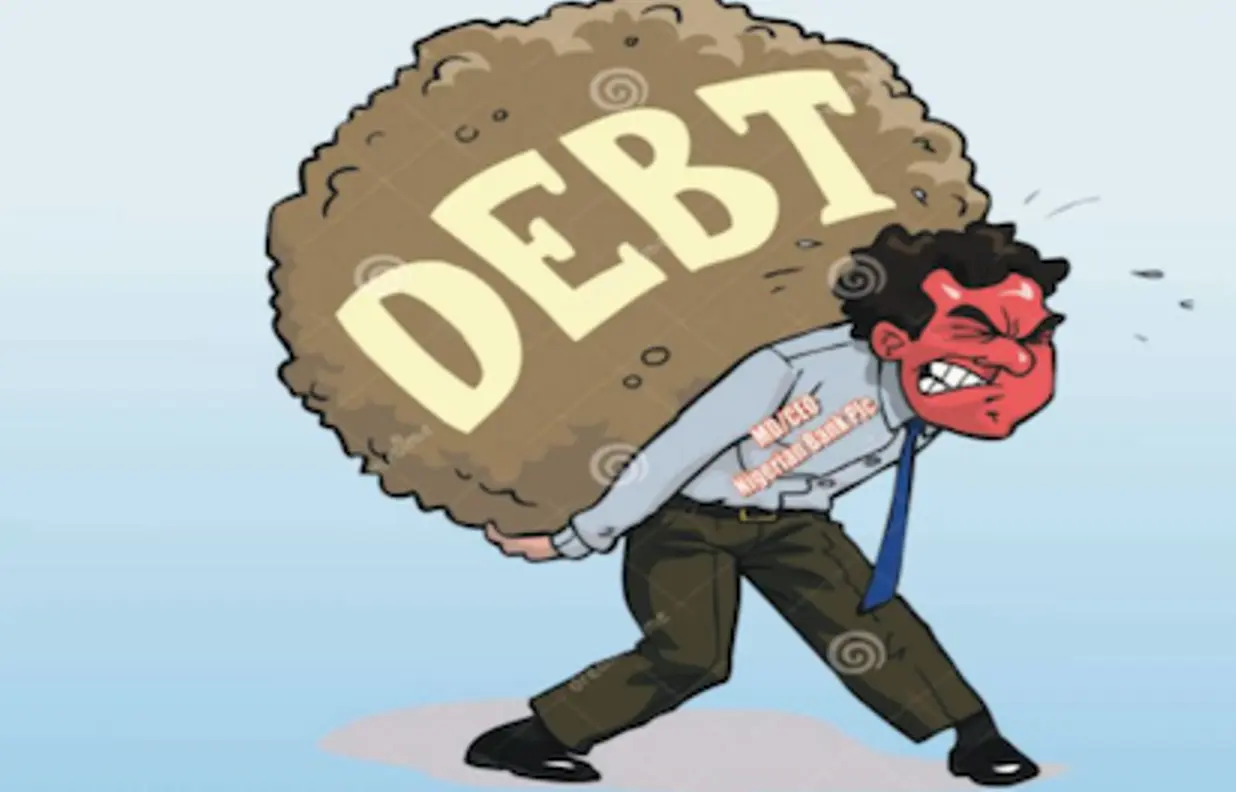The Weight of Debt on Nigeria’s States
As of June 2024, Nigeria’s 36 states and the Federal Capital Territory (FCT) owe a staggering N11.47 trillion in debt, marking a 14.57% increase since the close of 2023. Despite efforts to grow internal revenue and boost allocations from the Federal Accounts Allocation Committee (FAAC), states continue to accumulate debts, with both domestic and foreign liabilities rising. Citizens and experts alike are beginning to question whether state governments are equipped to handle this debt burden or if Nigeria is on the brink of a financial crisis.
“The debt situation feels like a noose around our necks,” says Kola Ademola, a small business owner in Lagos. “We’re paying the price with increased taxes and reduced services, and yet, nothing seems to improve. Are we working just to pay off this debt?”
Join our WhatsApp ChannelThis crisis, often called a “sinking ship” by locals, begs a critical question: how can Nigeria’s states manoeuvre their way out?
Debt Surge Despite FAAC Allocations
The Debt Management Office (DMO) has reported that Nigeria’s total state debt has risen significantly, moving from N10.01 trillion in December 2023 to N11.47 trillion by mid-2024. External debt for states also surged, largely due to the naira’s devaluation, which spiked from N899.39/$1 in December 2023 to N1,470.19/$1 by June 2024. This devaluation alone pushed naira-based debt by 73.46%, underscoring Nigeria’s vulnerability to external shocks.
A local economist, Dr. Sarah Christian, points out, “Our economy’s reliance on external debt is a risky approach, especially without a firm strategy for currency stabilization. As long as the naira is weakened, our debt will continue to climb with little reprieve for states struggling to keep up.”
Federal Reliance: A Looming Threat
Nigeria’s dependency on federally distributed revenue further complicates the picture. A 2024 report by BudgIT found that 32 states relied on FAAC for at least 55% of their revenue in 2023. For 14 states, this reliance was over 70%, leaving many highly susceptible to any fluctuations in federal revenue, primarily driven by the oil sector.
“It’s a concerning situation,” notes financial analyst Musa Bello. “Imagine 32 states relying on handouts while lacking sustainable revenue sources. If federal allocations decline, many of these states will struggle to finance even basic services.”
FAAC allocations offer temporary relief, but experts suggest that states need to look inward. Increased internal revenue generation and economic diversification could provide stability, reducing their vulnerability to oil price fluctuations and other global economic shifts.
The Internal Revenue Challenge
The Internally Generated Revenue (IGR) of Nigerian states rose by 20.33% in 2023, reaching N2.19 trillion. However, growth was unequal, with some states like Zamfara recording over 240% growth, while seven others experienced a decline. Only Lagos and Rivers managed to sustain themselves through their IGR.
“We see a huge gap between states,” comments Nkechi Orji, a public finance specialist. “Some, like Lagos, have leveraged technology and efficient tax systems to boost revenue, while others are still struggling. What works for one may not work for another, but there’s a clear need for states to create their own paths to fiscal viability.”
IGR struggles often arise from underdeveloped local economies and ineffective tax collection systems. Lagos State’s success is attributed to its digital tax systems, while states with less-developed infrastructure struggle to collect even basic taxes.
The Voices of Nigerians: “A Crisis of Mismanagement”
Many Nigerians, like Ademola, see the debt issue as a result of government mismanagement rather than a lack of resources. With the continued rise in state borrowing, some citizens fear that states may resort to extreme measures, including tax hikes, to repay debts.
“It feels like we’re being milked dry,” says Chinyere Okafor, a secondary school teacher in Lagos. “They tell us it’s for development, but look around – nothing has changed. Our children still go to schools without proper desks, and healthcare is abysmal. Where is this money going?”
This sentiment is widespread, with Nigerians across sectors expressing frustration over the lack of transparency in state spending. For many, the debt crisis isn’t just about numbers – it’s a question of trust in leadership.
Steps Toward Financial Sustainability
Experts suggest that Nigerian states must prioritize internal reforms to achieve long-term debt sustainability. BudgIT’s recommendations for states include improved revenue collection, tax harmonisation, and a single treasury system to track all state finances.
Additionally, leveraging public-private partnerships (PPPs) and technology for revenue collection could help states build self-reliant economies. Dr. Christian stresses the importance of innovative solutions: “If states are to survive, they must become economically independent. Public-private partnerships, tech-driven tax systems, and robust enforcement of tax laws are essential.”
Despite the urgency, some analysts believe that state governments are reluctant to make these changes. They argue that, as long as federal allocations continue, states may feel little pressure to diversify their economies or become self-sufficient.
Is There a Way Out of the Debt Crisis?
The Nigerian debt crisis is a test of leadership, as states face a choice between sustainable reform or further reliance on loans. For citizens like Okafor, the path forward must prioritise transparency and accountability. “We’re willing to pay our fair share,” she says, “but the government has to show us that they’re using it wisely. Otherwise, we’re just digging a deeper hole.”
The pressure is now on for states to heed the warning signs. Should they continue down this path of mounting debt, they risk long-term economic instability. As Orji warns, “Nigeria’s states cannot afford to treat debt as a short-term solution. Without sustainable revenue models, the debt trap will only tighten.”
The path to financial stability for Nigeria’s states is fraught with challenges, but by implementing sustainable revenue strategies and prioritizing fiscal discipline, there is hope for a more stable future.
Emmanuel Ochayi is a journalist. He is a graduate of the University of Lagos, School of first choice and the nations pride. Emmanuel is keen on exploring writing angles in different areas, including Business, climate change, politics, Education, and others.
- Emmanuel Ochayihttps://www.primebusiness.africa/author/ochayi/
- Emmanuel Ochayihttps://www.primebusiness.africa/author/ochayi/
- Emmanuel Ochayihttps://www.primebusiness.africa/author/ochayi/
- Emmanuel Ochayihttps://www.primebusiness.africa/author/ochayi/

















Follow Us